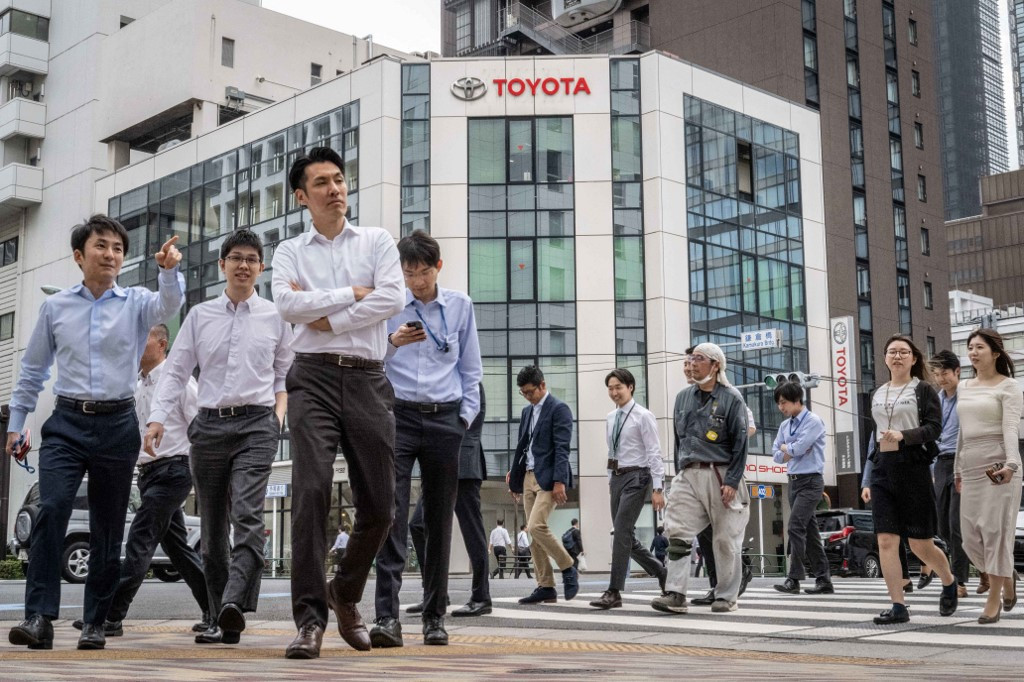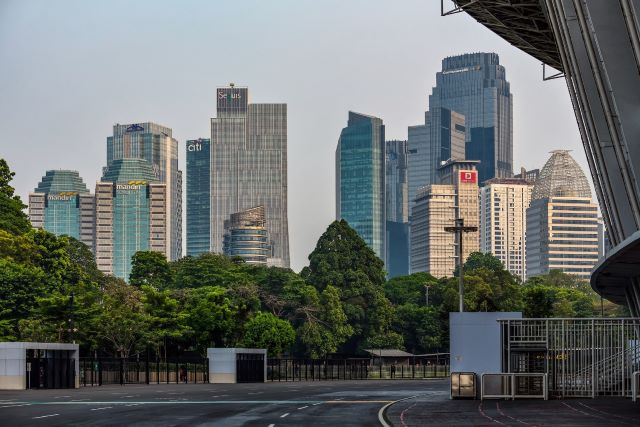Popular Reads
Top Results
Can't find what you're looking for?
View all search resultsPopular Reads
Top Results
Can't find what you're looking for?
View all search resultsJapan's economy slows in Q3 on tepid capex; consumption picks up
Change text size
Gift Premium Articles
to Anyone
J
apan's economy expanded by an annualized 0.9 percent over the July-September quarter, government data showed on Friday, slowing from the previous three months due to tepid capital spending though an unexpected pickup in consumption added a bright spot.
The slower growth highlights the frailty of Japan's economy just as there is a growing risk of slowdown in the US and further weakness in China, which could weigh on exports.
Stronger-than-expected private consumption, however, supports the central bank's forecast of a solid recovery driven by higher wages and consumption helping inflation sustainably hit its 2 percent target and justifying higher interest rates.
The increase in gross domestic product was faster than a median market estimate of a 0.7 percent, but slower than the revised 2.2 percent growth of the previous quarter, the data showed.
The reading translates into a quarterly rise of 0.2 percent, matching economists' median market estimate in a Reuters poll.
Private consumption, which accounts for more than half of economic output, rose 0.9 percent, outpacing a market estimate of 0.2 percent and picking up from the revised 0.7 percent of the previous quarter.
"The large increase in consumption was a big surprise," said economist Kengo Tanahashi at Nomura Securities.
Still, that may reflect one-off factors such as recovery in auto production after safety certification scandals and a boost from temporary income tax cuts, he said.
Overall, the data bodes well with further rate hikes, Tanahashi said.
"The growth in GDP at around 0.9 percent is slightly above the potential growth rate," he said.
Capital spending, a key driver of private demand-led growth, fell 0.2 percent in the third quarter, matching a decrease of 0.2 percent expected in the Reuters poll. Slowdown in overseas economies has put downward pressure on machinery investment in such sectors as chipmaking equipment, economists said.
Net external demand, or exports minus imports, knocked 0.4 point off growth, deeper than a 0.1-point negative contribution in April-June.
The Bank of Japan maintained ultra-low rates last month and said risk around the US economy was somewhat subsiding, signalling conditions are becoming conducive to raise rates again.
"We expect the economy to continue to recover on the back of better employment and wage conditions," Economy Minister Ryosei Akazawa said in a news conference. "But we will need to be careful about downside risks from overseas economies and volatility in financial and capital markets."
Economist Kazutaka Maeda at Meiji Yasuda Research Institute echoed Akazawa's view.
"US President-elect Donald Trump's promise to slap new tariffs on all imports could have a negative effect on Japan's exports but wage growth, if continued next year, will continue to underpin domestic consumption," he said.











